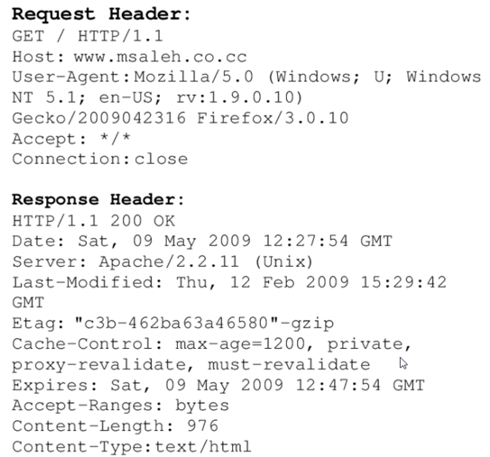HTTP header
HTTP headers are headers that the web browser sends as an HTTP request to the web server, which responds with an HTTP response.
As a rule, a browser's request to the web server is for information about a requested web page. In a corresponding request there is detailed information about the version of HTTP protocol: for example HTTP/1.1, compression: gzip and Deflate, content: text/ HTML, server, cookies, cache control and much more.
The HTTP response from the web server can contain an authentication hint and a lot of technical and content file information about the requested document type. This includes the headline, subheadline, text document, metadata, character count and much more. The message headers, of which there can be quite a few, can be grouped by usage. These include: Authentication, caching, client, connection management, content positioning, control, cookies, source sharing, downloads, message content, proxies, request context, response context, range requests, security, encoding, and sockets.

